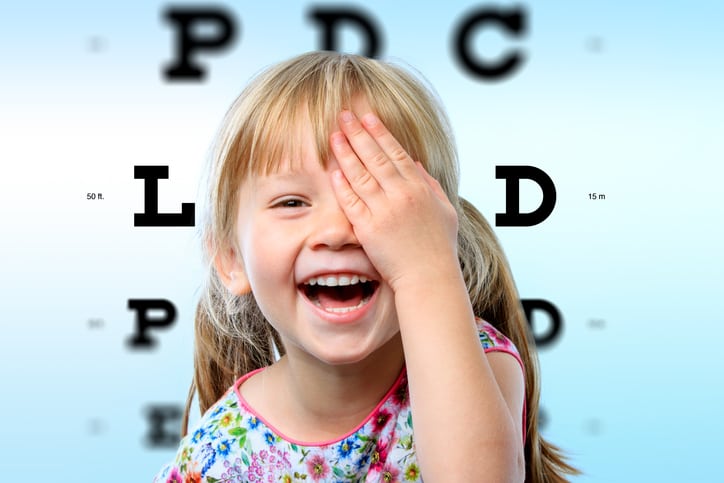August is Children’s Eye Health & Safety Month. If your child is struggling to see the board in their new classroom this year, it might be time to have their eyes checked. Hartford HealthCare optometrist Dr. Adam Ham, talks about the importance of yearly vision screenings and eye exams.
Q: How old would a child be when they get their first vision screening?
A: Our recommendation is that children are first screened between the ages of 6 and 12 months. There’s a national vision screening program called InfantSEE that provides for vision screenings of kids in this age group, regardless of their medical insurance.
Q: What’s the difference between a vision screening and an eye exam?
A: The purpose of vision screenings is to figure out if a child is having general vision issues: Either both eyes can’t see very well, or one eye is a little weaker than the other. It usually consists of standing a certain distance away from a paper chart on the wall and reading the letters. But for an eye exam, we’re going to do a bit more comprehensive work. We’ll have different methods to check vision. Not all kids, unfortunately, know their letters that well, so we’ll sometimes use pictures. We’ll check to see how well the eyes work together. If they can see their colors well. Do they have good depth perception? Also do a dilated exam to look in the back – just to make sure all these structures are okay.
Q: Do you recommend having vision screenings and eye exams performed before the start of the school year?
A: Yes. I know a lot of times it’s very common for parents to get their kids in for their yearly exams – their physicals – and they’ll get their vision screening then. That way they want to get everything set-up for school. We can get them in, get them seen. They can make sure their vision is going to be doing well before they start school, especially as the years progress – there’s more demand on the eyes as they learn to read. f
Q: What are the symptoms that parents need to be looking out for if they think things are wrong with their child’s vision?
A: Parents should look for squinting in one eye or both eyes. Rubbing the eyes. Complaining of headaches, either on the front or on the back of the head. Sometimes they’ll tilt their head to one side or the other. Some kids will just complain that they can’t see stuff. Also, anytime it seems like your child isn’t doing well in school, or if you’re concerned enough that you want to make sure that they’re in good shape, it’s great to get a comprehensive eye exam before school.
Get more information on eye health here.

